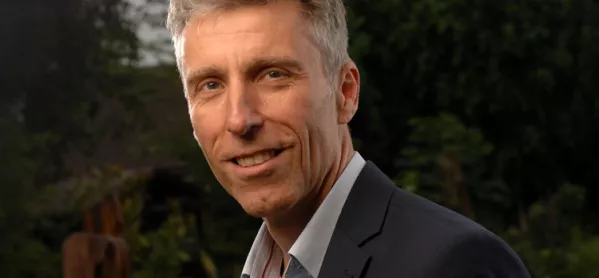We spend most of our time in education focused on qualifications, achievement rates and job outcomes. All vital, of course, but education must be about more than that. That’s why I’m pleased that the Association of Colleges, in partnership with NUS, is supporting Fair.Vote - a campaign with cross-party support in Parliament to lower the voting age to 16.
Colleges support over 700,000 16- to 18-year-olds on their journeys from childhood to citizenship. It’s an exciting but also potentially scary journey every young person makes, fraught with temptations, opportunities, new experiences and learning. At age 16, you have earned the right to pay taxes, to get married, to have children, to fight for your country, but you are not able to vote in our participative democracy. For that, you must await your 18th birthday. Fair.Vote aims to change that. We believe that every young person in the UK should have the right to vote in general elections, and we want every young person engaged in the discussion around it.
More than 100,000 16- and 17-year-olds voted in the Scottish referendum, showing that given the opportunity, young people will participate. Given the seriousness of the topic, it was great to see so many young people engaged politically, many for the first time. Political debate swept the nation and young people showed their eagerness to get involved. Whatever your views on the outcome of that referendum, it was heartening to see such vibrant and informed discourse on both sides
There was an attempt to allow young people to vote in the EU referendum in 2017, which was, of course, defeated. Much since has been written about the generational differences in voting behaviour, with young people more likely to vote Remain, whilst older people were more likely to vote Leave.
Political engagement
Whether we would have remained in the European Union had 16- and 17-year-olds had the right to vote is now rather academic, and not why we support Fair.Vote. We support it because we want young people to become more engaged in the world they live in. We want them to have a say in the future of their country and we want them to start adult life participating in our democratic processes. Perhaps more than anything else, we want to make citizenship real and a central part of education.
The main reasons used against this is that 16- and 17-year-olds are not mature enough, that they would not take it seriously, that they don’t know enough to use the vote wisely. Perhaps, but perhaps not. I’ve heard many young people talking about how nervous they would be about voting, simply because they would want to be informed and use their vote wisely. It’s precisely the impact we’d want, to encourage an exploration of political views and manifestos, supported by the college, learning more about how the country operates.
There’s also a potential payback for colleges in all of this. As the worst-hit part of the education system from the funding cuts that began a decade ago, colleges need a bigger profile and advocates who can speak about how vital they are to young people and adults. Mobilising young people to get more engaged with MPs and decision-makers will put colleges in the limelight as well, helping their campaign for better funding and more respect.
So, the next time you talk to a 16- or 17-year-old, ask them whether they would want to vote, what support they might like if they could and what issues are important to them. You might just learn something about the future leaders of our country.
Want to keep up with the latest education news and opinion? Follow Tes FE News on Twitter, like us on Facebook and follow us on LinkedIn




